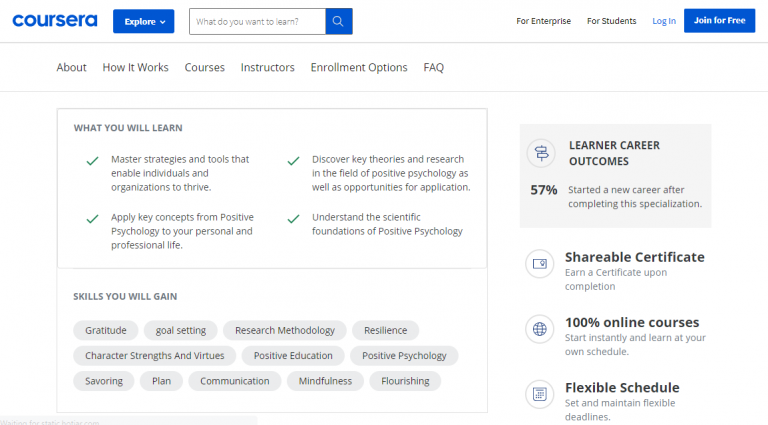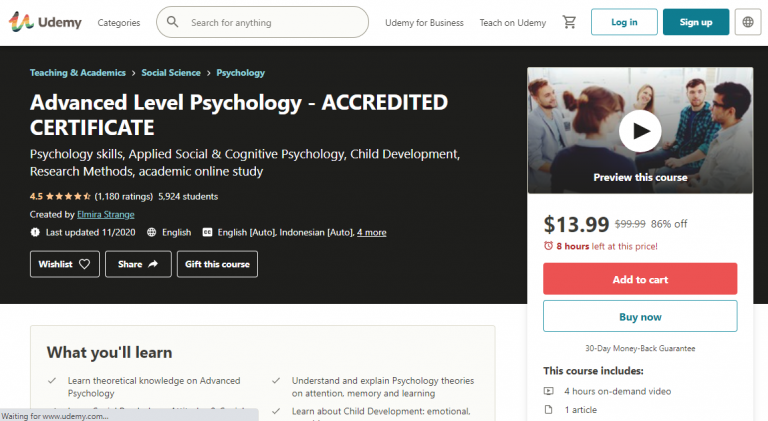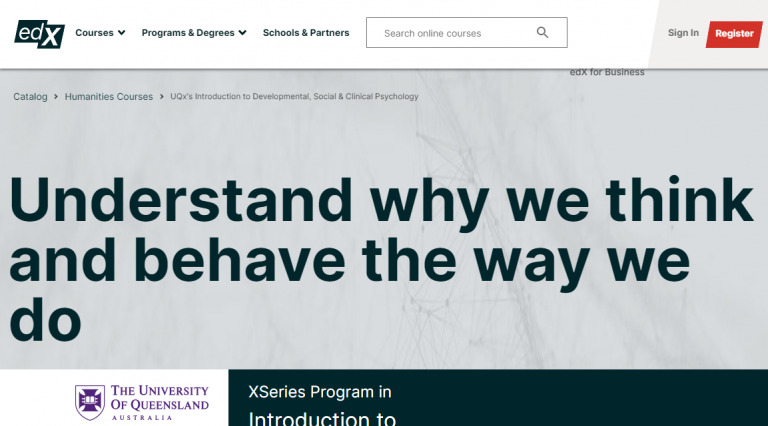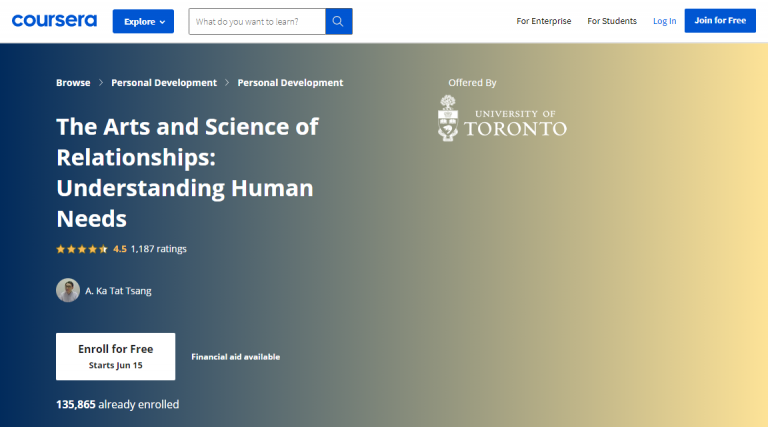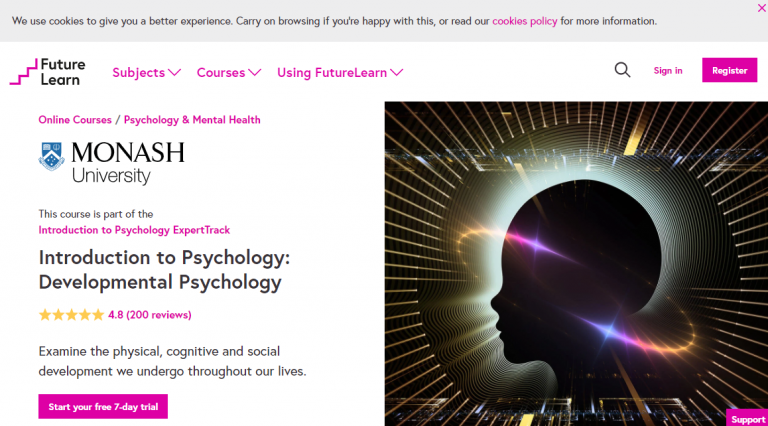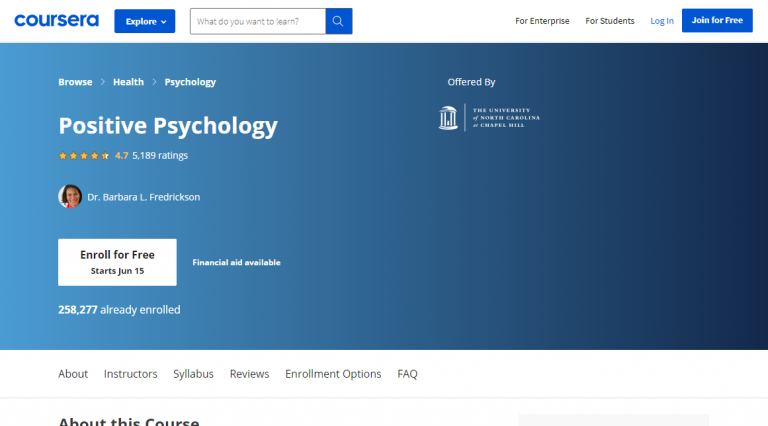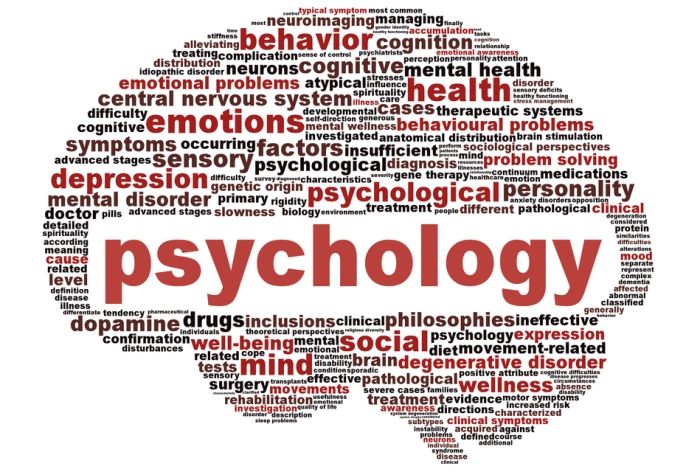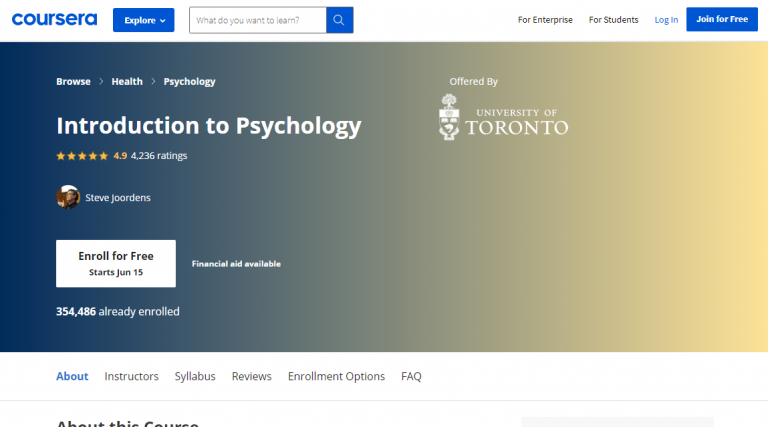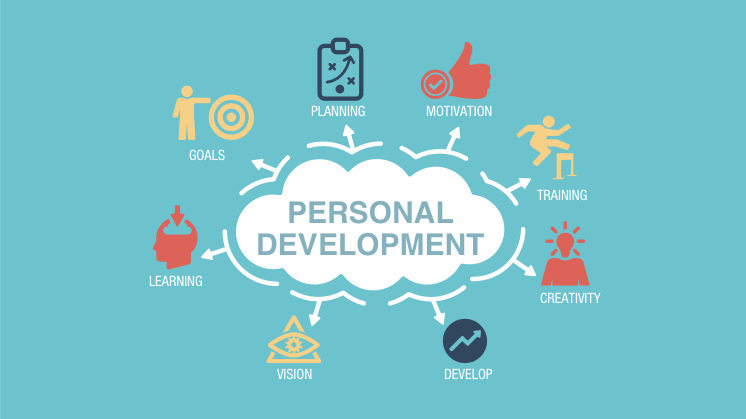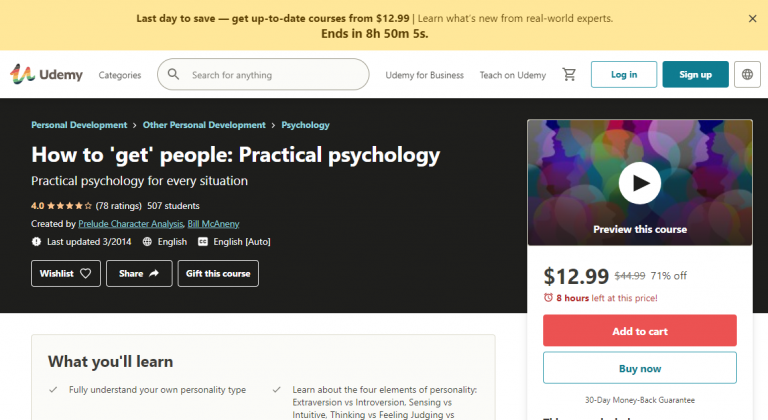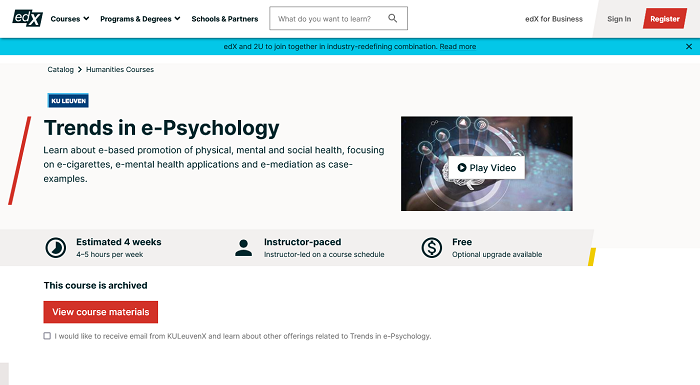The best psychology courses for you
All topics are curated by you, the community. Free from editorial bias, 100% independent. Upvote your favorite items, propose missing ones and shape the ranking of this topic.
In the field of psychology, these are the best courses.
It is no secret that the study of psychology has become increasingly popular in recent years. With the advent of the internet, there are now many opportunities to study psychology online. But with so many courses available, it can be hard to know which ones are the best.
To help you out, we’ve compiled a list of the best online psychology courses. These courses cover a wide range of topics, from the history of psychology to contemporary issues in the field. Whether you’re looking to learn more about yourself or get a better understanding of the human mind, these courses will give you the knowledge you need.
-
Foundations of Positive Psychology Certification
WHAT YOU WILL LEARN:
- Master strategies and tools that enable individuals and organizations to thrive.
- Discover key theories and research in the field of positive psychology as well as opportunities for application.
- Apply key concepts from Positive Psychology to your personal and professional life.
- Understand the scientific foundations of Positive Psychology.
Applied Learning Project:
Learners design and justify small-scale positive interventions to enhance specific aspects of their personal wellbeing based on the skills acquired in each course of the specialization. Personal reflections are implemented provide learners with the skills to impact their personal and professional lives.
Article from: https://www.coursera.org/specializations/positivepsychology
-
Advanced Level Psychology Certificate
What you'll learn :
- Learn theoretical knowledge on Advanced Psychology
- Understand and explain Psychology theories on attention, memory and learning
- Learn Social Psychology: Attitudes & Social Cognition
- Learn about Child Development: emotional, cognitive
- Know what Research Methods in Psychology involve and why we need them
- Understand current debates in Psychology
Requirements:
An interest in studying Psychology
A desire to study advanced form of Psychology
Description
Welcome to 'Advanced Psychology' course!
Have you ever wondered why some people behave in a very different or even 'odd' way? What makes us all 'different' from one another? Have you ever wondered what psychological disorders are? Does Psychology fascinate you?
Then you might be ready for this comprehensive Advanced Level Psychology course!
Who this course is for:
Students wishing to pursue Psychology studies
Individuals who wants to re-familiarise themselves with the topic of Psychology
Anyone who is changing direction in their career to the more Psychology based work
Anyone who likes to expand their knowledge for personal use
Article from: https://www.udemy.com/course/advanced-psychology/
-
XSeries Program in Introduction to Developmental, Social & Clinical Psychology - The University Of Queensland Autralia. Most Comprehensive Course.
What you will learn:
- An understanding of human behaviour in social settings
- An appreciation for how we develop over our lifespan
- An introduction to common psychological disorders and how we treat them
- An understanding of the benefits of systematic research, and how to conduct and report it.
This psychology XSeries is an introduction to developmental, social, and clinical psychology so you can better understand the human mind and how it drives behavior.
You will learn about:
Psychological disorders and how they are treated
Why we act the way we do in certain settings and situations
How our bodies and minds develop from birth until later in life
Methods behind psychological research and how to interpret and report research
Article from: https://www.edx.org/xseries/introduction-developmental-social
-
This course is Best for Social Workers - Offered By University of Toronto
About this Course
This course provides an introduction to:
1. Basic concepts of The Strategies and Skills Learning and Development System (SSLD), their relevance for every day relationships and provide advanced concepts for participants who work in fields of social work and health care .
2. Basic practice principles and methods of SSLD, illustrated by relationship management case studies.
3. The SSLD framework for relationship management assessment; N3C (needs, circumstances, characteristics, capacity) and problem translation.
4. Core competencies in the relationship management application of the SSLD system: Observation learning, simulation, real life implementation, review and monitoring.
Article from: https://www.coursera.org/learn/human-needs
-
Examine the physical, cognitive and social development we undergo throughout our lives.
Learn about the psychological changes that all humans go through
There are three types of human development that are ongoing throughout our lives: cognitive, social, and physical.
On this course, you’ll discover the key transitions within these different development types. You’ll look at how they are tied to psychological changes and investigate how and why they occur.
You’ll explore what effect genes and the environment have on development and consider whether development is continuous or discontinuous.
You’ll also look into the skills needed in order to conduct research within the area of psychology.
Understand the fundamentals of human development, lifespan theory, stages of development and end-of-life
Modern psychology leans on various theories to help us understand social and cognitive development. This course will help you explore and distinguish between them to gain a language for discussing developmental psychology. You’ll identify key transitions within human development and consider different research models within them.
A strong understanding of developmental psychology is essential to anybody who would like to work or study in the field, and can be incredibly useful to educators, parents, and people who would like to understand their own way of seeing the world a little better.
This course requires no prior experience – a keen interest in psychology will suffice.
It will prove particularly valuable if you’ve achieved a bachelor’s degree in another subject and would like to improve your science and research abilities.
Article from: https://www.futurelearn.com/courses/developmental-psychology
-
This course is Offered by The University of North Carolina at Chapel Hill
About this Course
This course discusses research findings in the field of positive psychology, conducted by Barbara Fredrickson and her colleagues. It also features practical applications of this science that you can put to use immediately to help you live a full and meaningful life.
Article from: https://www.coursera.org/learn/positive-psychology
-
Learn the science of human behavior and how to apply it to everyday life with this in-depth guide to applied psychology.
What you'll learn:
- Identify the motivating factors behind all patterns of human behavior.
- Make smarter, more calculated decisions by learning from your past.
- Use your knowledge to solve problems that directly affect people's lives.
- Improve your ability to reason and regulate your emotional responses.
- Make more well-informed judgments that are in line with your priorities.
- Separate behaviour and personality from the heart of human identity.
- Accurately predict how people will act, perceive, reason and behave.
- Build stronger connections and more genuine relationships with people.
- Raise your mind like a philosopher and interpret life's events accurately.
- And much, much more.
Description:
Are you interested in gaining a better understanding of human behavior? Psychology is the study of the mind, one of the most complex and complex machines on our planet. Our thoughts, feelings, habits and behaviors are generated by our mind.
Through the use of powerful principles from many of the major thinkers and theories, and explanations that are easy to understand, this Diploma in Modern Applied Psychology training course demystifies an extensive range of hard-to-understand concepts and illustrates how they have shaped our understanding of the human mind.
Coverage of all schools of psychology is included, including cognitive, humanistic, social, and behavioural psychology, making the course ideal for anyone fascinated by psychology as a general topic. In applied psychology, psychology-based concepts are put into practice and real-world outcomes are prioritized over abstract theories and opinions.
Applied psychologists study human behavior to learn more about how the mind works. Although the mind cannot be seen directly, everything we do, think, feel, and say is affected by it. Most people are familiar with foundational psychology (pure research); however, it's not until this research turns into something useful that psychology becomes relevant.
Applied Psychology allows you to understand how those around you think, what kind of feelings they experience, how they act and communicate, and what motivates them. As individuals, we all use psychology every day when interacting with others, yet the majority of people are not aware of the psychology behind their choices and behaviors.
In the years since Wilhelm Wundt opened the first experimental psychology lab in 1879, a great deal has been learned about the mind and its behavior. This unique training course introduces you to the seven fundamental schools of psychological thought, equipping you with the knowledge to assist and spark positive change in people's lives.
Those who study Modern Applied Psychology are likely to work in a range of careers, from education, to coaching and medicine, to social enterprises, politics, and entrepreneurship. This is a perfect introduction to the psychology of human behaviour and is filled with intriguing cases and ideas that will give you a broader perspective on how your mind works.
Psychologists strive to influence people in a way that leads to positive and enduring changes in their lives. The aim of the curriculum is to assist you in laying a solid foundation on which you may build your continuing studies in Applied Psychology (and its associated range of supportive disciplines; for example, coaching, CBT, counselling, etc.).
If you want to make some significant improvements in the quality of your day-to-day life, whether for you personally, for the benefit of your family, friends, co-workers or community groups, enrolling in this Diploma in Modern Applied Psychology training course will influence how you understand yourself, other people that you know, and the world more accurately.
Individuals seeking to improve their relationship with themselves, eliminate self-doubt, and learn how to interact with others more effectively are also provided with personal growth strategies. The course will provide you with a range of innovative strategies for evaluating your beliefs, gaining confidence, and adopting a genuine attitude of empowerment.
- Who this course is for:
- This course is best suited to students who are interested in improving themselves.
- Anyone interested in enhancing their personal or professional development.
- This course is suitable for men and women, regardless of age or ethnic background.
- Students with an interest in psychology will find this course particularly interesting.
- This course is for students who are dedicated to self-discovery and improvement.
- The course can be taken standalone or in conjunction with another Achology training.
Article from: https://www.udemy.com/course/diploma-in-modern-applied-psychology-achology-certified/
-
Better Marketing and Personal Success with Behavioral Science and the Psychology of Influence and Persuasion
What you'll learn:
- Get people to say "yes" more often
- Understand the underlying psychological principles of influence
- Develop your own strategies to influence other people's behavior
Requirements:
- No previous knowledge is necessary to reap the huge benefits you'll get from these principles in this course.
Description
How do you get someone to give you a ride to the airport? How can you get more people to buy your product? How can you get someone to donate money to your charity?
Influencing other people can be next to impossible if you don’t know how. Research in psychology and behavioral science, however, has developed a set of core principles that underlie people’s willingness to say “yes” to a request. In this course, you’ll learn these principles as well as how to apply them in everyday situations. Get ready to skyrocket your influence!
Using the Science of Influence to its Full Potential
Everything in this course is rooted in tested principles of influence, based on decades of rigorous research in behavioral science. This isn’t NLP or other forms of folk wisdom—these are actual techniques that have been tested and assessed with solid research methods.
A few of the things we'll cover:
- How giving a gift that nobody wants can actually push people to help you
- How it can be helpful to ask people to do something that you know they’ll say “no” to
- How your birthday can have a more powerful effect on other people than you’d expect
- How adding a single sentence to your request can double the chances that the other person will agree to it.
- ...and way more!
Course Overview
Social influence is a huge part social psychology, and many people have begun to see its applications to the world of business, fundraising, advocacy, and even everyday interactions. In this course, you'll develop the skills needed to influence other people more effectively. You’ll not only learn a bunch of proven influence strategies; you’ll also learn why they work, which will help you develop your own techniques that have yet to be discovered by psychologists.
These tools and techniques apply no matter what your unique goals are. Once you understand the core principles of psychological influence, you'll be ready to get people to do just about anything for you. Whether that’s marketing, saving the environment, or just doing household chores, you'll have what it takes to get the job done.
Who this course is for:
- Salespeople who want to increase sales can easily apply these tactics for sales success
- Fundraisers who want to raise more money and increase donations can apply these tactics for those goals
- Managers who want to have more control over their employees can apply these tactics to get the results they want
- Anyone can use these strategies to get what they want and increase their social abilities
Article from: https://www.udemy.com/course/psychology-influence/
-
Offered By Johns Hopkins University
About this Course
Learn to provide psychological first aid to people in an emergency by employing the RAPID model: Reflective listening, Assessment of needs, Prioritization, Intervention, and Disposition.
Utilizing the RAPID model (Reflective listening, Assessment of needs, Prioritization, Intervention, and Disposition), this specialized course provides perspectives on injuries and trauma that are beyond those physical in nature. The RAPID model is readily applicable to public health settings, the workplace, the military, faith-based organizations, mass disaster venues, and even the demands of more commonplace critical events, e.g., dealing with the psychological aftermath of accidents, robberies, suicide, homicide, or community violence. In addition, the RAPID model has been found effective in promoting personal and community resilience.
Participants will increase their abilities to:
- Discuss key concepts related to PFA
- Listen reflectively
- Differentiate benign, non-incapacitating psychological/ behavioral crisis reactions from more severe, potentially incapacitating, crisis reactions
- Prioritize (triage) psychological/ behavioral crisis reactions
- Mitigate acute distress and dysfunction, as appropriate
- Recognize when to facilitate access to further mental health support
- Practice self-care
Article from: https://www.coursera.org/learn/psychological-first-aid
-
Offered By Yale University
About this Course:
What are people most afraid of? What do our dreams mean? Are we natural-born racists? What makes us happy? What are the causes and cures of mental illness? This course tries to answer these questions and many others, providing a comprehensive overview of the scientific study of thought and behavior. It explores topics such as perception, communication, learning, memory, decision-making, persuasion, emotions, and social behavior. We will look at how these aspects of the mind develop in children, how they differ across people, how they are wired-up in the brain, and how they break down due to illness and injury.
Article from: https://www.coursera.org/learn/introduction-psychology
-
Learn why people think and behave the way they do in social settings. By The University of Queensland
About this course:
We often have firmly held beliefs about why people think and behave the way they do. Sometimes our intuitions are correct, but often they are not.
Social psychology helps us understand how people think about themselves and other people and what motivates their behaviour in social settings.
This course explores a range of topics in social psychology, from how we think about ourselves, how we think about others, and how we interact and communicate with others. We will also discuss the ways that we can influence others and be influenced by others. Finally, we look at some problematic aspects of human behaviour, such as prejudice and aggression.
You should take this course if you are curious about why we behave the way we do.
What you'll learn:
- How we influence each other
- Why we sometimes hurt other people
- How we think about ourselves and others
- How we communicate non-verbally
- Why people behave pro-socially
- Where prejudice and stereotypes come from
Article from: https://www.edx.org/course/introduction-to-social-psychology
-
Offered By Yale University
About this Course
In this course you will engage in a series of challenges designed to increase your own happiness and build more productive habits. As preparation for these tasks, Professor Laurie Santos reveals misconceptions about happiness, annoying features of the mind that lead us to think the way we do, and the research that can help us change. You will ultimately be prepared to successfully incorporate a specific wellness activity into your life.
THE SCIENCE OF WELL BEING WAS PRODUCED IN PART DUE TO THE GENEROUS FUNDING OF THE DAVID F. SWENSEN FUND FOR INNOVATION IN TEACHING.
Article from: https://www.coursera.org/learn/the-science-of-well-being
-
Practical psychology for every situation
What you'll learn:
- Fully understand your own personality type
- Learn about the four elements of personality: Extraversion vs Introversion, Sensing vs Intuitive, Thinking vs Feeling Judging vs Perceiving
- Appreciate difference between personality and behaviour and how this gives us choice and the ability to change how we do things for the better
- Accurately spot different ‘types' of people
- Understand how people might see you depending on your personality type
- Make the best of yourself in every situation
- Influence people and situations to get better outcomes
Requirements:
- There are no specific requirements for the course. You will be prompted to take the Prelude Character Analysis as part of the course so you’ll need web access. If you’d like to make notes then make sure have whatever equipment to make notes with.
Description:
Do you want to:
- Be able to spot different personalities?
- Understand why you ‘click’ with some people but not others?
- Get along better with people by understanding the differences between personality types?
- Learn what you are like in a relationship?
- Manage conflict effectively. Some people dislike and avoid conflict, whereas others use it to solve problems and get things done?
- Find out how to motivate and get the best out of different personality types?
This intensely practical course will show you how deal with different personalities and show you how to maximize your own impact and potential using real life scenarios.
By the end of this course you will be better able to:
- Know what makes people tick
- Know yourself and how to better adapt
Who this course is for:
- Anybody who meets, works with, lives with or manages other people and who wants to better understand people dynamics. People brand new to learning about personality, through to personality enthusiasts will all benefit from this fresh and practical approach.
Article from: https://www.udemy.com/course/how-to-get-people-practical-psychology/
-
Learn about e-based promotion of physical, mental and social health, focusing on e-cigarettes, e-mental health applications and e-mediation as case-examples.
About this course
This course explores a variety of electronic applications used in the promotion of healthy behavior, focusing on cases relating to physical health (electronic cigarettes), mental health (apps and wearables), and social health (e-mediation). In each of these areas, experts will share cutting-edge scientific knowledge and demonstrate some of the latest e-applications to boost healthy behavior. The course consists of 3 modules:
e-Cigarette: Promoting physical health. In this module, you will learn about the potential implications of e-cigarettes as a Tobacco Harm Reduction Strategy. You will gain contemporary scientific knowledge about the safety, efficacy, and potential health threats of using e-cigarettes.
e-Mental Health: Promoting mental health. In this module, you will learn about innovations in online, mobile and wearable tools used in mental healthcare (a rapidly expanding field), as well as their potential advantages and disadvantages.
e-Mediation: Promoting social health. In this module, you will learn about the core principles of mediation, and how you can use electronic communication to prevent escalation and promote conflict resolution during the mediation process.
This MOOC consists of knowledge clips, demonstration movies, exercises, discussion, and homework (reading) assignments.
What you'll learn
After the course, you will be able to objectively evaluate the pros and cons of various e-based health-promotion innovations, and effectively use some of these e-channels to promote healthy behavior.
Article from:https://www.edx.org/course/trends-in-e-psychology
